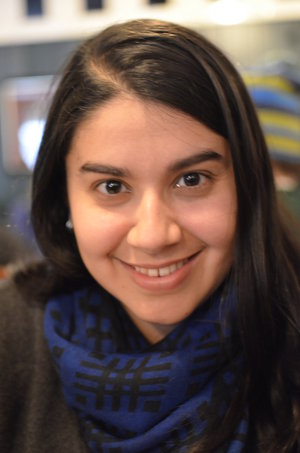Medical Physics Seminar – Monday, April 14, 2014
Patient-oriented breast imaging dosimetry

Mariela A. Porras-Chaverri (student of Dr. John Vetter)
Research Assistant, Dept of Medical Physics, UW-School of Medicine & Public Health, Madison, WI - USA -
The quantity of interest in breast imaging dosimetry is the mean glandular dose (MGD), which estimates the average dose to the glandular breast tissue. This quantity is linked to the risk of radiation-induced breast carcinogenesis.
The current mammography dosimetry methods are based on a breast model with a homogeneous distribution of the adipose and glandular tissues and overlook the heterogeneous distribution of the glandular and adipose tissues within the breast.
The low energy photons used in mammography are rapidly attenuated by the breast tissue, which causes a rapid decrease in the dose deposition within the breast with increasing depth. This has a direct impact on the dose received by the heterogeneously distributed glandular tissue located at different depths.
The homogeneous approximation is useful for general quality assurance purposes, but introduces a severe limitation in the application of the model to anatomical breasts, where the glandular tissue distribution is heterogeneous. As a result, the current clinical MGD estimates suffer from severe inaccuracies and do not correspond to the doses received by the patients.
In this seminar, a dosimetry method based on estimates of glandular tissue distribution using CC-MLO glandularity map pairs and a heterogeneously-layered breast (HLB) geometry is presented.
The proposed methodology provides the basis for more accurate estimations of MGD. It has the added advantage that it makes use of information and resources available in typical clinical settings and can be used in retrospective studies.
A more accurate estimation of MGD will lead to more accurate estimates of radiation induced carcinogenesis risk. It will also lead to more realistic dose levels for other emerging breast imaging techniques, such as tomosynthesis and dedicated breast CT (bCT).